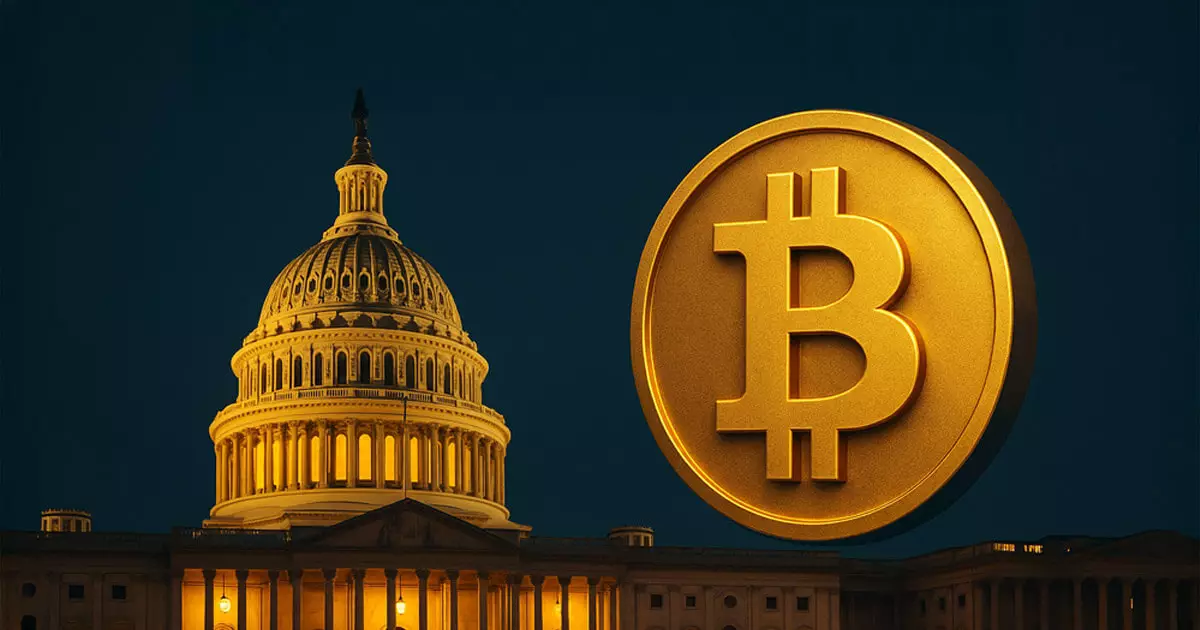In recent developments, a select group of corporate Bitcoin holders has formed what they call the Treasury Council, signaling a bold move toward institutional dominance in the crypto space. Led by high-profile CEOs from firms like MARA, Riot, and CleanSpark, this coalition clearly aims to influence federal policy in favor of Bitcoin by lobbying Congress and endorsing legislation such as the BITCOIN Act. While at first glance this appears to be a natural evolution of the digital economy, a closer examination reveals a troubling trend: the push toward centralization under the guise of mainstream adoption.
Their influence extends beyond simple advocacy—they are positioning themselves as gatekeepers of America’s future financial sovereignty. By consolidating power among a handful of corporate giants, they threaten to turn Bitcoin into a tool that serves their own interests rather than the decentralized ethos it was built upon. The narrative that these entities are “advocates” for crypto sounds compelling, yet it conceals their real agenda: leveraging government support to entrench their market dominance and control over digital assets.
The Risks of State-Sanctioned Bitcoin Reserves
What makes this movement particularly concerning is the push for a federal Bitcoin reserve, funded through taxpayer dollars and managed by government authorities. The proposed legislation mandates the U.S. government acquire & up to one million Bitcoin—an amount valued at over $116 billion—over five years. Such a plan risks transforming Bitcoin from a decentralized store of value into a state-controlled asset, akin to a national treasure rather than a financial innovation for individual empowerment.
The government’s role here shifts from neutral custodian to active participant and potential manipulator. The introduction of centralized Bitcoin storage facilities under federal control could undermine the core principles of permissionless finance, exposing the network to political interference and regulatory overreach. Moreover, the notion that these assets will be held for at least 20 years suggests a move toward stockpiling, weaponizing Bitcoin as an economic weapon rather than a tool for free-market innovation.
The Dangerous Consequences of Centralization and Fiduciary Overreach
While proponents argue this provides stability and long-term security, the consolidation of Bitcoin holdings in government coffers undermines the fundamental idea of individual sovereignty. If the state controls the majority of the national Bitcoin reserve, it effectively becomes the primary arbiter of its fate, defying the decentralized spirit that originally inspired the cryptocurrency revolution.
Additionally, the implications for market stability are alarming. Large-scale holdings by the federal government could distort Bitcoin’s supply and demand dynamics, influence its price, and even facilitate government intrusion into the crypto economy. This centralized approach makes Bitcoin less of a free-floating asset and more of a political tool—potentially used to stabilize fiat currencies or even to exert financial retaliation against adversaries.
This geopolitical risk is compounded by the fact that influential lawmakers who endorse these policies also support increased government control over crypto assets. Such synergy between corporate interests and political institutions encroaches on individual liberty and questions the future of private financial sovereignty in the United States. If the federal government becomes a major holder of Bitcoin, accountability and transparency will inevitably suffer, and the innovative spirit that drew many into crypto may be sacrificed at the altar of centralized authority.

